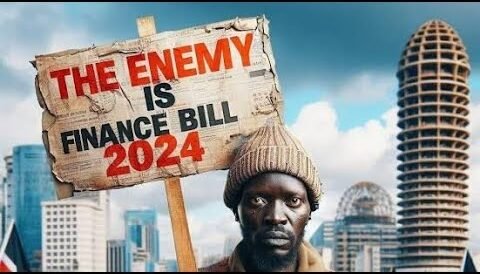During the Finance Bill protests in Kenya, several brands stood out for their engagement with the public, either by taking a stance or through their responses to the unfolding events. Here are a few notable examples:
1. Safaricom
Safaricom, Kenya’s largest telecommunications provider, was under the spotlight during the Finance Bill protests, especially due to its role in mobile money transactions via M-Pesa. While Safaricom did not take an explicit public stance on the protests, it became a focus of discussion among protesters who were concerned about potential tax increases on mobile money transfers and other digital services. The brand’s perceived proximity to government policies and its impact on daily transactions made it a central topic during the protests.
2. Equity Bank
Equity Bank, one of Kenya’s leading banks, was also mentioned frequently during the protests, particularly in discussions about the Finance Bill’s implications for financial services. The bank’s strong presence in the Kenyan market and its role in providing access to credit and financial services meant that any proposed tax changes affecting the banking sector would directly impact its customers. The bank was careful in its communications, focusing on reassuring customers about its commitment to providing affordable financial services amid the evolving economic environment.
3. KCB Bank
KCB Bank, another major player in Kenya’s banking sector, found itself in a similar position to Equity Bank. As one of the largest banks in the country, KCB was closely watched by both customers and critics during the protests. The bank maintained a neutral stance publicly but was actively engaged in behind-the-scenes lobbying and discussions about the potential impacts of the Finance Bill on the banking sector and its customers.
4. Nation Media Group
Nation Media Group (NMG), one of Kenya’s leading media companies, played a crucial role in covering the protests and providing a platform for public discourse. Through its various outlets, including the Daily Nation newspaper, NMG covered the protests extensively, offering both news coverage and opinion pieces on the Finance Bill. The media group’s balanced reporting and focus on the implications of the bill for ordinary Kenyans helped shape public perception and informed the national debate.
5. Citizen TV (Royal Media Services)
Citizen TV, part of Royal Media Services, also stood out during the Finance Bill protests. Known for its wide reach and influence, Citizen TV provided comprehensive coverage of the protests, including live broadcasts, interviews with key stakeholders, and analysis of the bill’s potential impact. The channel’s role in informing and engaging the public on the issues at stake during the protests was significant in shaping the national conversation.
6. NGOs and Civil Society Groups
While not traditional brands, various non-governmental organizations (NGOs) and civil society groups played a critical role during the Finance Bill protests. Organizations like the Kenya Human Rights Commission (KHRC) and Amnesty International Kenya were vocal in their opposition to the bill, organizing protests, and advocating for the rights of ordinary Kenyans. These groups effectively used social media and other platforms to rally support and raise awareness about the bill’s potential consequences.
Conclusion
The Finance Bill protests in Kenya brought to the fore the critical role of brands and organizations in shaping public discourse and responding to national issues. While some brands maintained a neutral stance, others, particularly in the media and civil society sectors, played an active role in informing and engaging the public. The protests highlighted the importance of corporate social responsibility and the need for brands to be mindful of their positions on sensitive national issues.



